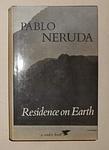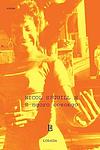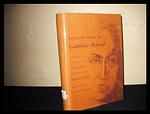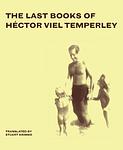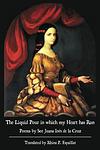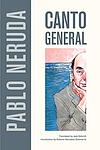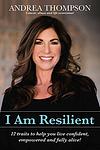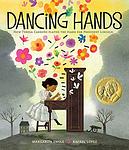Genres
Poetry is a genre of literature that uses language to evoke emotion, paint vivid imagery, and convey complex ideas through the use of rhythm, meter, and sound. It is characterized by its use of figurative language, such as metaphors and similes, and its ability to capture the essence of a moment or experience in a concise and powerful way. Poetry can take many forms, including sonnets, haikus, free verse, and spoken word, and can cover a wide range of topics, from love and nature to politics and social issues. As a category for books, poetry offers readers a unique and intimate glimpse into the human experience, inviting them to explore the beauty and complexity of language and the world around them.
Date Range
Reading Statistics
Click the button below to see how many of these books you've read!
Download
If you're interested in downloading this list as a CSV file for use in a spreadsheet application, you can easily do so by clicking the button below. Please note that to ensure a manageable file size and faster download, the CSV will include details for only the first 500 books.
Download-
1. Poems of Pablo Neruda by Pablo Neruda
This book is a collection of poetry by a renowned Chilean poet who is known for his passionate, intense, and deeply emotional verses. The poems touch on a variety of themes, including love, nature, politics, and the human condition. The poet's unique style, which combines vivid imagery, profound emotion, and a deep connection with the natural world, is evident in each of the pieces in this collection.
-
2. Martín Fierro by José Hernández
"Martín Fierro" is an epic poem that tells the story of a gaucho, or Argentine cowboy, who is forcibly recruited to fight against indigenous tribes. He returns to find his home destroyed and his family gone, leading him to become an outlaw. The narrative explores themes of Argentine identity, the conflict between civilization and nature, and the injustices suffered by the gauchos. It is recognized as a foundational work of Argentine literature.
-
3. Residence on Earth by Pablo Neruda
"Residence on Earth" is a collection of poems that delve into the human condition, exploring themes of love, despair, loneliness, and the search for identity and meaning. The poems are characterized by their deep introspection, vivid imagery, and profound emotional resonance. The author's unique style combines surrealism, historical allusions, and a keen observation of the natural world, resulting in a powerful and evocative exploration of the human experience.
-
4. The Complete Poetry of César Vallejo by César Vallejo
This comprehensive collection showcases the unique and profound poetry of a renowned Peruvian writer, encompassing his entire body of work. The poet's themes often revolve around love, death, and the human condition, reflecting his deeply held political beliefs and personal experiences. His innovative use of language and form revolutionized Latin American poetry, making this collection an essential read for anyone interested in modernist literature.
-
5. Trilce by César Vallejo
"Trilce" is a groundbreaking collection of 77 avant-garde poems that explore the complexities of human existence and emotions. The work is known for its innovative use of language and form, challenging traditional poetic norms. It delves into themes of love, death, and existential angst, while also reflecting on the author's personal experiences, including his struggles with poverty and his political beliefs. The poems are characterized by their intense imagery, complex syntax, and a sense of deep melancholy.
-
6. Spain, Take This Chalice from Me by César Vallejo
"Spain, Take This Chalice from Me" is a poignant collection of poetry that reflects on the Spanish Civil War's brutal impact. The author, deeply moved by the conflict, uses powerful imagery and emotive language to express the heartbreak, despair, and hope experienced by the Spanish people. The poems serve as a profound commentary on war, exploring themes of sacrifice, struggle, and resilience in the face of adversity.
-
7. Dreamtigers by Jorge Luis Borges
"Dreamtigers" is a collection of short stories, essays, and poems that delve into the realm of metaphysics, infinity, mirrors, and changing identities. The book explores the author's fascination with the dream world and the blurred boundaries between reality and imagination. The narrative is filled with complex themes, paradoxes, and illusions, often inspired by the author's own experiences and his love for literature and philosophy.
-
8. Sóngoro cosongo by Nicolás Guillén
"Sóngoro cosongo" is a collection of poems that celebrates Afro-Cuban culture. The author explores the richness of the Afro-Cuban experience, using the language and rhythms of son music and Afro-Cuban dialect to bring his subjects to life. Themes include racial identity, social inequality, and the cultural fusion of Spanish and African influences in Cuba. The author's use of humor and satire also serves to critique the racial prejudices and social injustices of his time.
-
9. Selected Poems of Gabriela Mistral by Gabriela Mistral
This book is a compilation of selected poems by a renowned Latin American poetess, who was the first Latin woman to win the Nobel Prize in Literature. The collection features a wide range of themes including love, sorrow, nature, and death. Her unique poetic style, often characterized by emotive language and vivid imagery, has made her a significant figure in the world of literature.
-
10. The Last Books of Hector Viel Temperley by Hector Viel Temperley
"The Last Books of Hector Viel Temperley" is a compilation of the Argentine author's final three books of poetry, displaying his unique style that combines spiritual and erotic themes. The author's deeply personal and emotional poems are often centered around religious mysticism and sensual love, with a particular focus on the body and physicality. The collection also includes a series of sonnets dedicated to the Virgin Mary, reflecting the author's strong Catholic faith.
-
11. The Golden Age by José Martí
"The Golden Age" is a heartfelt coming-of-age story set in the late 19th century, following the life of a young boy named José Martí. Through his eyes, readers witness the challenges and triumphs of growing up in a tumultuous time in Cuba's history. Martí's journey is marked by his unwavering passion for justice, his deep love for his homeland, and his relentless pursuit of freedom and equality. This poignant narrative explores themes of identity, patriotism, and the power of hope, leaving readers with a profound understanding of the human spirit and the enduring fight for liberty.
-
12. Poems Of Octavio Paz by Octavio Paz
This collection brings together the lyrical and evocative work of a Nobel laureate, showcasing his profound exploration of the human condition and his relentless pursuit of the philosophical and the sensual. The poems traverse a wide range of themes, from the intimate to the universal, reflecting on love, solitude, the passage of time, and the interplay between culture and nature. The poet's masterful use of language and form, drawing from both indigenous Mexican heritage and modernist influences, creates a rich tapestry of imagery and emotion that invites readers to ponder the depths of their own experiences and the world around them.
-
13. Poems Of Juana Inés De La Cruz by Juana Inés de la Cruz
This collection of poetry showcases the lyrical genius and intellectual prowess of a 17th-century Mexican nun, who became one of the most illustrious figures in Spanish literature. The poems delve into themes of love, feminism, religion, and the pursuit of knowledge, reflecting the poet's life as a self-taught scholar and her struggles with the expectations placed upon her gender. Her work is celebrated for its wit, complexity, and the passionate defense of women's rights to intellectual freedom, marking her as a pioneering figure in early feminist literature.
-
14. Poems Of Rubén Dário by Rubén Dário
This collection is a testament to the literary prowess of a pioneering Latin American poet, often regarded as the father of modernismo. The poems within weave a rich tapestry of rhythm, symbolism, and exotic imagery, reflecting a diverse range of themes from existential ponderings to passionate romanticism, and critiques of contemporary societal issues. The poet's innovative use of language and form broke with traditional poetic norms and influenced subsequent generations of Spanish-speaking poets, marking a significant evolution in Hispanic literature.
-
15. Canto General by Pablo Neruda
"Canto General" is an epic poem that delves into the rich and tumultuous history, culture, and nature of Latin America. Through its lyrical and powerful verses, the work explores the struggles and identities of the continent's people, spanning from the ancient civilizations to the political upheavals of the 20th century. The poet weaves a tapestry of images and emotions that celebrate the beauty of the land while also critiquing the forces of oppression and colonialism. This sweeping poetic narrative serves as both a homage to the resilience of the human spirit and a call to action for justice and liberation.
-
16. Twenty Love Poems And A Song Of Despair by Pablo Neruda
This collection is a poignant exploration of love in its various forms, from the intoxicating thrill of youthful passion to the profound depths of heartache and loss. The poems weave a tapestry of emotion, blending sensuality with a deep connection to nature and the human experience. The verses are characterized by their vivid imagery and emotional intensity, culminating in a final song that laments unrequited love and the pain of solitude. The work has resonated with readers for its raw honesty and lyrical beauty, establishing it as a timeless ode to the complexities of love.
-
17. Poems Of César Vallejo by César Vallejo
The collection presents a profound and innovative body of work from a significant 20th-century poet, known for his deeply emotional and existential poetry that often reflects on themes of suffering, redemption, and the human condition. Drawing from personal hardships and the political turmoil of his time, the poet's verses are characterized by their experimental form, linguistic innovation, and a compassionate voice that seeks to transcend individual pain and connect with universal human experiences. His work is celebrated for its technical mastery, emotional depth, and its ability to convey complex feelings and ideas with intense imagery and a sense of profound empathy.
-
18. Poems Of Nicolás Guillén by Nicolás Guillén
This collection of poetry delves into the rich tapestry of Afro-Cuban culture, exploring themes of social justice, racial identity, and political struggle. The poet employs a unique blend of lyricism and vernacular language, often incorporating the rhythms of son and Afro-Cuban music, to give voice to the marginalized and oppressed. Through vivid imagery and poignant commentary, the poems reflect on the complexities of Cuba's history and the poet's own experiences, offering a powerful testament to the resilience of the human spirit in the face of adversity.
-
19. Fully Empowered by Pablo Neruda
"Fully Empowered" is a collection of poetry that explores the themes of political engagement, love, and the human condition. The poems reflect the author's deep commitment to social justice and his belief in the power of the individual to effect change. With rich imagery and passionate language, the poet weaves together personal and collective experiences, highlighting the struggles and triumphs of the marginalized. The work serves as a testament to the resilience of the human spirit and the enduring quest for freedom and empowerment.
-
20. Travelling In The Family by Carlos Drummond de Andrade
"Travelling in the Family" is a collection of introspective poems that delve into the themes of memory, time, and familial bonds. The poet reflects on his past, weaving personal history with the broader tapestry of Brazilian culture and landscape. Through his verse, he explores the complex relationships within his family, the bittersweet nature of nostalgia, and the inexorable passage of time that alters places and people. The work is a poignant meditation on the poet's own journey through life, examining the interplay between individual identity and collective heritage.
-
21. Drum Dream Girl by Margarita Engle
"Drum Dream Girl" is a captivating children's book that tells the inspiring true story of a young girl in 1930s Cuba who dreams of playing the drums. Despite societal expectations and cultural norms that prohibit girls from playing music, the determined protagonist follows her passion and breaks barriers, ultimately becoming the first female drummer in Cuba. Through vivid illustrations and poetic storytelling, the book celebrates the power of dreams, perseverance, and the importance of challenging societal limitations.
Reading Statistics
Click the button below to see how many of these books you've read!
Download
If you're interested in downloading this list as a CSV file for use in a spreadsheet application, you can easily do so by clicking the button below. Please note that to ensure a manageable file size and faster download, the CSV will include details for only the first 500 books.
Download

